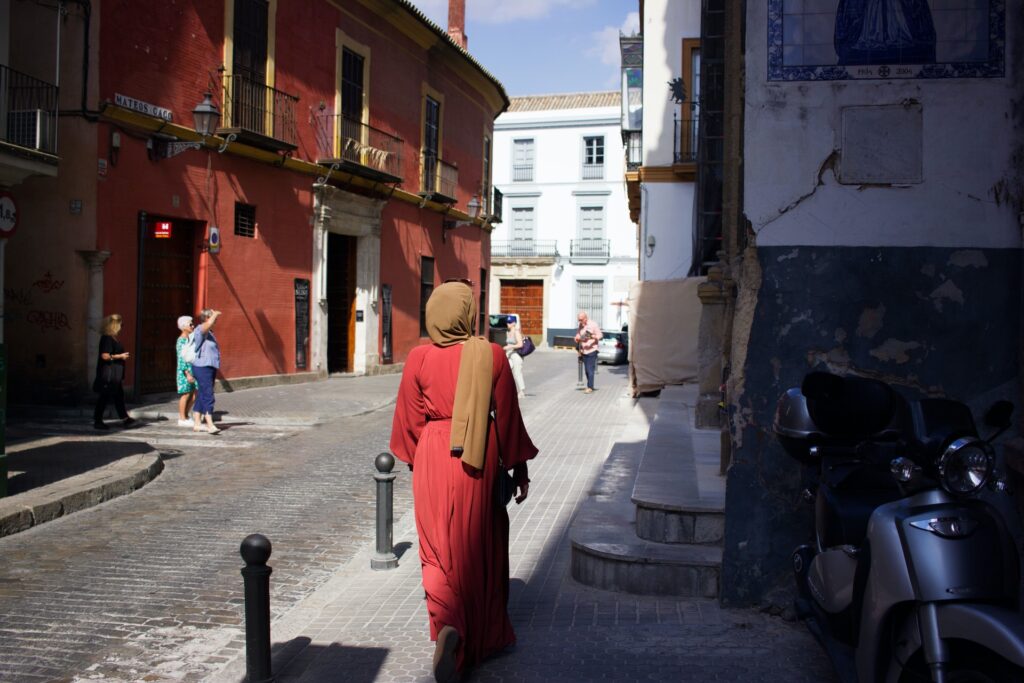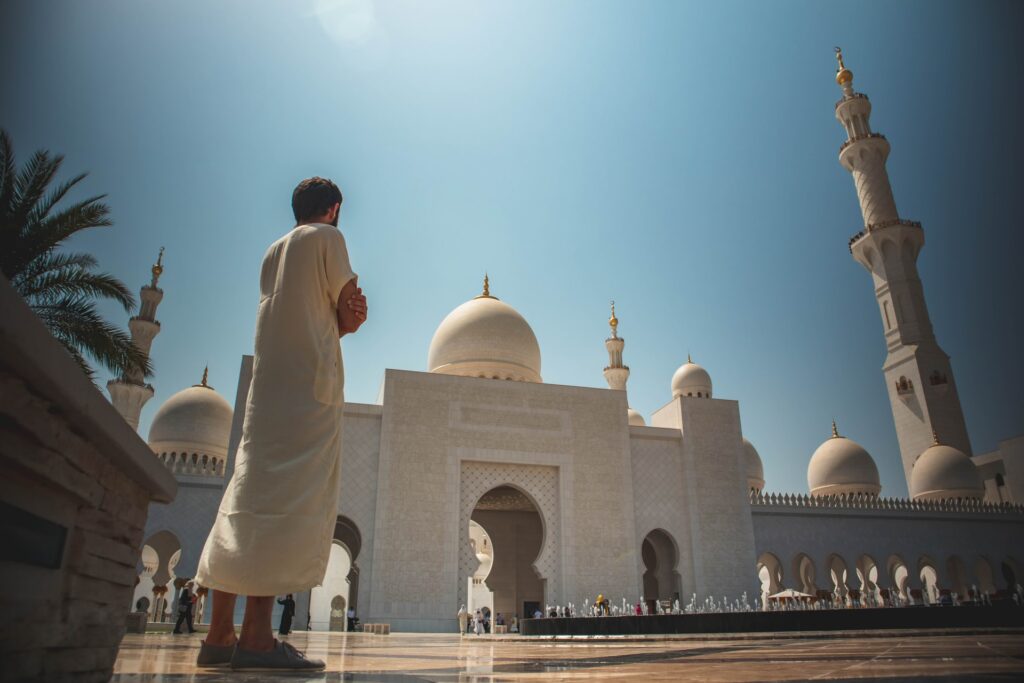Judging happens in the blink of an eye.
Without realizing it, we’re judging full-time.
Every human does it.
But are we qualified judges?
Before making a decision, a judge would examine the facts, listen to different versions of the same story, consult others, etc.
The essence of judgment is careful thinking.
We don’t have time for that.
So we automate the judgment procedure.
For an appearance or behavior, we have pre-made judgments ready to go.
Why am I interested in this topic?
First, I want to fight my own flaws and biases.
I’m an INFJ Personality Type. The J stands for judgmental. In the absence of complete information, I can make judgments that might be wrong.
Second, building strong Muslim communities is impossible with people judging each other.
We lose all the benefits of having communities: protection, support, counsel, matching talents, etc.
Judging comes with a price. It corrupts our heart, our faith, and ultimately, threatens our success in the afterlife.
Judging is a big thing. Let’s see why.
Why Judging?

Judging Has a Root
The most common judgment is appearance-based.
For example, Westernized Muslims judge traditionally-dressed Muslims as backward.
Traditionally-dressed Muslims judge Westernized Muslims as second-class believers.
We also judge the behavior, or even worst, something as invisible as the intentions.
The root of judgment is ego.
We become the reference for what a good Muslim ought to be.
We say things like:
- I would never do such a thing.
- I’m better than that.
- I’m more righteous.
Anyone different from us sets off our comparison mode.
The winner of this comparison contest is never the other.
The most known comparison story is one of Iblis (Satan) and Adam.
Iblis was also obsessed with comparing. It’s the main reason he didn’t submit to the divine order.
Allah asked:
“What prevented you from prostrating when I commanded you?” He replied, “I am better than he is: You created me from fire and him from clay.”
[Quran 7:12]
When we’re obsessed with comparing, we are no different than him.
Looking for Perfection
We’re begging for Allah’s mercy when passing His judgment. But we have no problem being harsh on people.
While Allah wants progress on his path, we ask people for perfection.
When Allah gives time to the best generation of Muslims to transform themselves, we don’t give people a second.
We assume that, because we’re sharing the same belief in God and his Prophet, we’re supposed to be identical.
Nothing could be further from the truth.
Muslims are diverse. They have different backgrounds, upbringings, cultures, realities, and personal trials.
In their journey of faith, Muslims have different speeds.
The world of today is enough complicated for Muslims that we don’t need to make it more complicated for each other.
Judging doesn’t help anyone. Instead of bringing us closer, it pushes us away from each other.
Judging is selfish. It’s for our personal satisfaction. A way to feel good about ourselves.
Why We Are Bad Judges

The Subway Story
This is a story narrated by Stephen Covey in The 7 habits of highly effective people. It has nothing to do with Islam, but it shows well why we don’t have enough information to judge others.
“I remember a mini-paradigm shift I experienced one Sunday morning on a subway in New York. People were sitting quietly – some reading newspapers, some lost in thought, some resting with their eyes closed. It was a calm, peaceful scene.
Then suddenly, a man and his children entered the subway car. The children were so loud and rambunctious that instantly the whole climate changed.
The man sat down next to me and closed his eyes, apparently oblivious to the situation. The children were yelling back and forth, throwing things, even grabbing people’s papers. It was very disturbing. And yet, the man sitting next to me did nothing.
It was difficult not to feel irritated. I could not believe that he could be so insensitive as to let his children run wild like that and do nothing about it, taking no responsibility at all. It was easy to see that everyone else on the subway felt irritated, too. So finally, with what I felt like was unusual patience and restraint, I turned to him and said, “Sir, your children are really disturbing a lot of people. I wonder if you couldn’t control them a little more?”
The man lifted his gaze as if to come to a consciousness of the situation for the first time and said softly, “Oh, you’re right. I guess I should do something about it. We just came from the hospital where their mother died about an hour ago. I don’t know what to think, and I guess they don’t know how to handle it either.”
Can you imagine what I felt at that moment? My paradigm shifted. Suddenly I saw things differently, and because I saw differently, I thought differently, I felt differently, I behaved differently. My irritation vanished. I didn’t have to worry about controlling my attitude or my behavior; my heart was filled with the man’s pain. Feelings of sympathy and compassion flowed freely. “Your wife just died? Oh I’m so sorry! Can you tell me about it? What can I do to help?” Everything changed in an instant.”
We Don’t Know
We know nothing about people or what they’re going through.
And yet, some Muslims act like God.
Somehow, Allah gave them divine knowledge with which they issue a divine judgment.
They know in advance who’s going to hell and who’s going to heaven!
“Has he looked into the unseen or taken a pledge from the Most Compassionate?”
[Quran 19:78]
And most important, we don’t know how people will turn.
The Messenger of Allah (PBUH) said:
“Verily, one of you would perform the actions of the dwellers of Jannah until there is only one cubit between him and it (Jannah), when what is foreordained would come to pass and he would perform the actions of the inmates of Hell until he enters it. And one of you would perform the actions of the inmates of Hell until there is only one cubit between him and Hell. Then he would perform the acts of the dwellers of Jannah until he would enter it.”
[Al- Bukhari and Muslim]
Islam is pragmatic.
It means that, when our hobby is to judge others, we notice the little flaws in them and miss the big ones in us.
The messenger of Allah said:
“Glad tidings to the one more concerned about his own faults than worrying about the shortcomings of others.”
[Al-Bazzar in Musnad]
He also said:
“Part of the perfection of one’s Islam is his leaving that which does not concern him.”
[At-Tirmidhi]
Judging: From the Heart to the Tongue

The Reality of Faith
While we make a big deal of our appearance, it’s not what God looks at.
Abu Huraira reported Allah’s Messenger (PBUH) as saying:
Verily Allah does not look to your faces and your wealth but He looks to your heart and your deeds.
[Muslim]
The heart is where the faith lies.
“Only those who come before Allah with a pure heart will be saved.”
[Quran 26:89]
The Prophet (PBUH) emphasized the importance of the heart in the famous hadith:
“Beware! There is a piece of flesh in the body if it becomes good the whole body becomes good but if it gets spoilt the whole body gets spoilt and that is the heart.”
In another hadith, the Messenger of Allah (PBUH) established the link between the faith, the heart, and the tongue:
“The faith of a servant is not upright until his heart is upright, and his heart is not upright until his tongue is upright.”
[Musnad Ahmad]
Watch Out for Your Tongue
Judging someone to establish some kind of superiority is wrong, whether we keep it secret or we advertise about it.
Allah says:
“Shun all sin—open and secret.”
[Quran 6:120]
However, pointing at other people’s flaws and talking about them is worse.
The righteous control their tongue to protect their heart so they preserve their faith.
When Uqbah ibn ‘Amir asked the Messenger of Allah, what will save us?” The Prophet (PBUH) answered:
“Control your tongue, let your house be enough for you, and weep for your sins.”
[At-Tirmidhī]
Another hadith shows how the tongue can potentially corrupt all of our being:
The Prophet (PBUH) said:
“When the son of Adam gets up in the morning, all of his body organs humble themselves before the tongue, and say: ‘Fear Allah concerning us! For indeed, we are only as you are (our condition depends upon yours); if you are upright, we shall be upright, and if you are crooked, we shall be crooked.’”
[At-Tirmidhi]
The tongue reflects what’s in the heart.
When the heart is filled with love, mercy, and God-consciousness, the tongue doesn’t speak ill of people. It’s as simple as that.
How to Judge Less

Remembering We’re Humans
“All the sons of Adam are sinners, but the best of sinners are those who repent often.”
[At·Tirmidhi]
If we think of ourselves as perfect, tomorrow will prove to us we’re wrong.
God Likes Positive Thoughts
“Allah does not like negative thoughts to be voiced—except by those who have been wronged. Allah is All-Hearing, All-Knowing .”
[Quran 4:148]
When we are in judgment mode, we don’t see what people do right.
Understand Me!
We find all kinds of excuses and exceptional circumstances for our mistakes. We want people to understand them.
Fine, let’s find the same excuses for others.
Help Is Better Than Judgment
Judging doesn’t serve either us or the other person.
If we are really concerned about the well-being of others, we can offer our help.
Invite to the Path with Wisdom
“Invite to the way of your Lord with wisdom and good instruction, and argue with them in the best manner.”
[Quran 16:125]
When we spot something wrong, pointing at people and calling them misguided won’t change anything.
Instead, we can advise lovingly.
‘Invite’ implies love. In general, we don’t invite people that we hate!
Final Thoughts

Some will argue: are we not allowed to praise the right and condemn the wrong?
Right and wrong are stated in Islam and we are allowed to talk about them.
But the Prophet, the Salaf, and the Tabi’un didn’t name people and their flaws in a public gathering.
None of us will be more religious than the Prophet. And yet, he was among the people, believers or disbelievers, not apart from them.
He was humble, accessible, and gentle.
People could come to consult him about Islamic or non-Islamic matters.
That’s the spirit.
Flawed people were all around the Prophet. If he was judgmental, no one would come close to him.
I hope all of us can understand this point and work on what brings us together.
And what’s better than a dua to close this article:
“O Allah, join our hearts, mend our social relationship, guide us to the path of peace, bring us from darkness to light, save us from obscenities, outward or inward, and bless our ears, our eyes, our hearts, our spouses, our children, and relent toward us; You are the Relenting, the Merciful. And make us grateful for Your blessing and make us praise it while accepting it and give it to us in full.”
Popular Articles
- 7 Lessons from Luqman that Will Make You Wise
- How to Enjoy Salat and Make it Meaningful
- Mongols Invasions: Some Forgotten Lessons to Today’s Muslims
- For or Against Vaccines? That’s Not Really the Question
- Are Muslims Meant to Be Sleep Deprived?
- Islamic Psychology: A Model Where Faith Has Its Place
- Muslims Judging Each Other: Why and How to Be Less Judgy
- The Certainties of Muslims in Uncertain World
- Allah According to Allah: The Beauty Behind the Verse of Light
- Blindness: From the Invisible Gorilla to the Quranic Perspective
- How to Make People Change their Mind: Persuasion!
